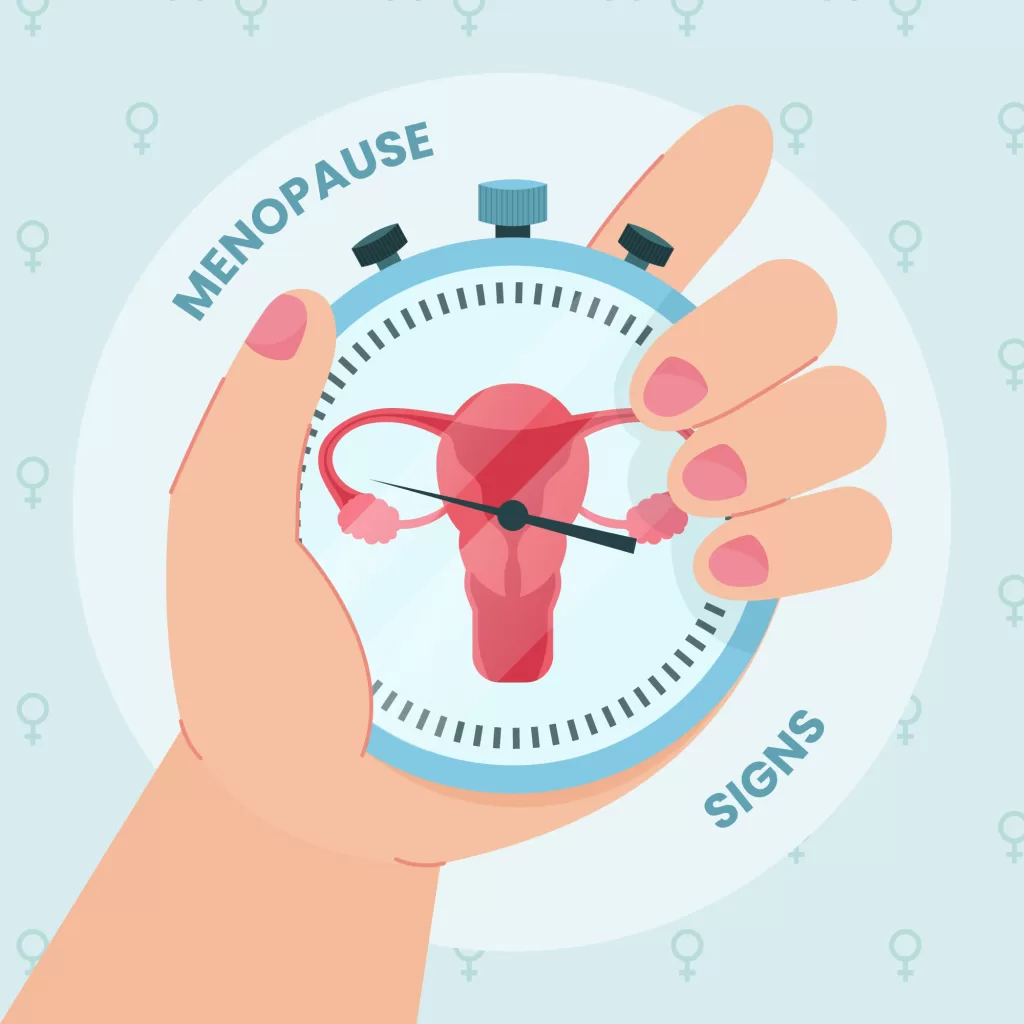- February 28, 2025
- By: peopletreehospitals
- No Comments
Women’s Day: Empowering Women Through Menopause Awareness
March 8th marks International Women’s Day, a global celebration of the achievements, strength, and resilience of women across the world. As we honor the progress women have made in all aspects of life, it’s also a time to reflect on their health and well-being, particularly in stages of life that are often under-discussed—such as menopause.
Menopause is a natural part of every woman’s life, but the menopausal transition often comes with physical, emotional, and psychological challenges. Despite being a universal experience, menopause is frequently misunderstood and underrepresented in conversations about women’s health. This Women’s Day, let’s shed some light on the subject, raise awareness, and empower women to approach this phase of life with knowledge, support, and confidence.
What is Menopause?
Menopause is the time in a woman’s life when her menstrual cycles cease, signaling the end of her reproductive years. This typically occurs between the ages of 45 and 55, although it can happen earlier or later. The transition into menopause, known as perimenopause, can last several years, during which women may experience a variety of symptoms due to fluctuating levels of estrogen and progesterone. These hormonal changes can affect everything from mood to sleep, and can even impact physical health, such as bone density and heart health.
Common Symptoms of Menopause
Menopause brings with it a range of symptoms, some of which may be subtle, while others can be more disruptive. Common symptoms include:
- Hot flashes and night sweats
- Sleep disturbances or insomnia
- Mood swings, anxiety, and irritability
- Vaginal dryness and discomfort
- Memory lapses or difficulty concentrating
- Weight gain and changes in metabolism
- Decreased libido
- Bone density loss (increased risk of osteoporosis)
Menopause and Mental Health: The Emotional Impact
The hormonal changes during menopause can affect women’s mental and emotional well-being. It is common for women to experience mood swings, anxiety, or even depression. These feelings may be compounded by changes in personal identity, relationships, or life transitions such as becoming an empty-nester or retiring.
It’s important to prioritize mental health during menopause. Many women find that therapies such as cognitive behavioral therapy (CBT), mindfulness, or simply connecting with others who understand their experience can be extremely helpful. Support from loved ones, as well as health professionals, can ensure that women do not have to navigate this phase of life alone.
Managing Menopause: Tips and Treatments
While menopause is a natural part of life, managing the symptoms effectively can significantly improve a woman’s quality of life. Here are some strategies to help:
- Stay Active and Exercise Regularly: Physical activity can help reduce the frequency and intensity of hot flashes, improve mood, and prevent weight gain. Activities such as walking, yoga, and strength training can also promote bone health and enhance overall well-being.
- Eat a Balanced Diet: A diet rich in calcium, vitamin D, and phytoestrogens (plant-based compounds that mimic estrogen) can help combat some menopausal symptoms. Foods like tofu, flaxseeds, and legumes can provide natural relief. It’s also important to stay hydrated and limit caffeine and alcohol, which may exacerbate symptoms.
- Consider Hormone Replacement Therapy (HRT): HRT is a medical treatment that can help balance estrogen and progesterone levels during menopause. However, it’s important to consult with a healthcare provider to understand the benefits and risks based on individual health history.
- Practice Stress Reduction Techniques: Mindfulness, meditation, and deep breathing exercises can alleviate symptoms of anxiety and stress associated with menopause. Yoga is particularly beneficial for balancing both body and mind.
- Use Vaginal Moisturizers and Lubricants: For women experiencing vaginal dryness, using vaginal moisturizers and lubricants can help improve comfort during sex and reduce irritation.
Breaking the Taboo: Talking Openly About Menopause
Despite the fact that every woman will go through menopause, the topic remains taboo in many cultures. Menopause awareness is still lacking in society, leading many women to feel isolated and unsure about how to navigate this life transition. This Women’s Day, it’s time to break the silence and normalize conversations around menopause.
By speaking openly about menopause symptoms, treatments, and mental health, we can create a supportive environment where women feel empowered to seek help, share their experiences, and access the necessary care and treatment options.
Empowering Women with Knowledge and Support
As we celebrate International Women’s Day, it’s crucial to acknowledge the significance of menopause and the impact it can have on a woman’s life. By raising awareness, sharing knowledge, and providing support, we can help women navigate this phase with confidence, ensuring they feel empowered to live their healthiest, happiest lives—no matter their age.
Let’s celebrate menopause awareness by creating spaces where women can share their stories and access the information they need. Together, we can continue to empower women to live their best lives, from their reproductive years to their post-menopausal phase and beyond.

